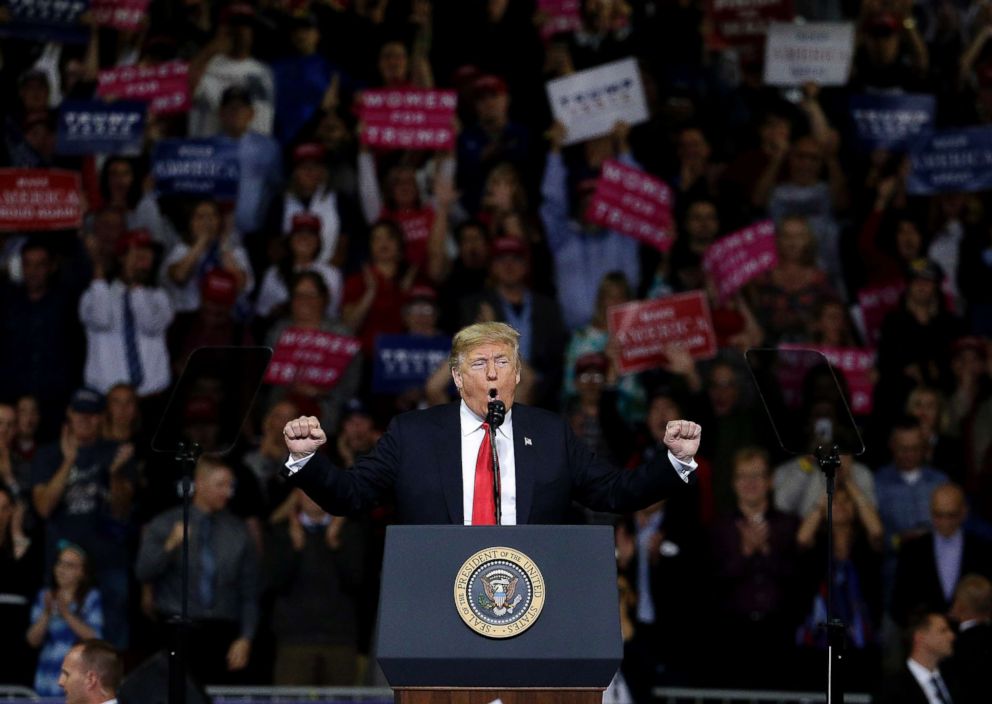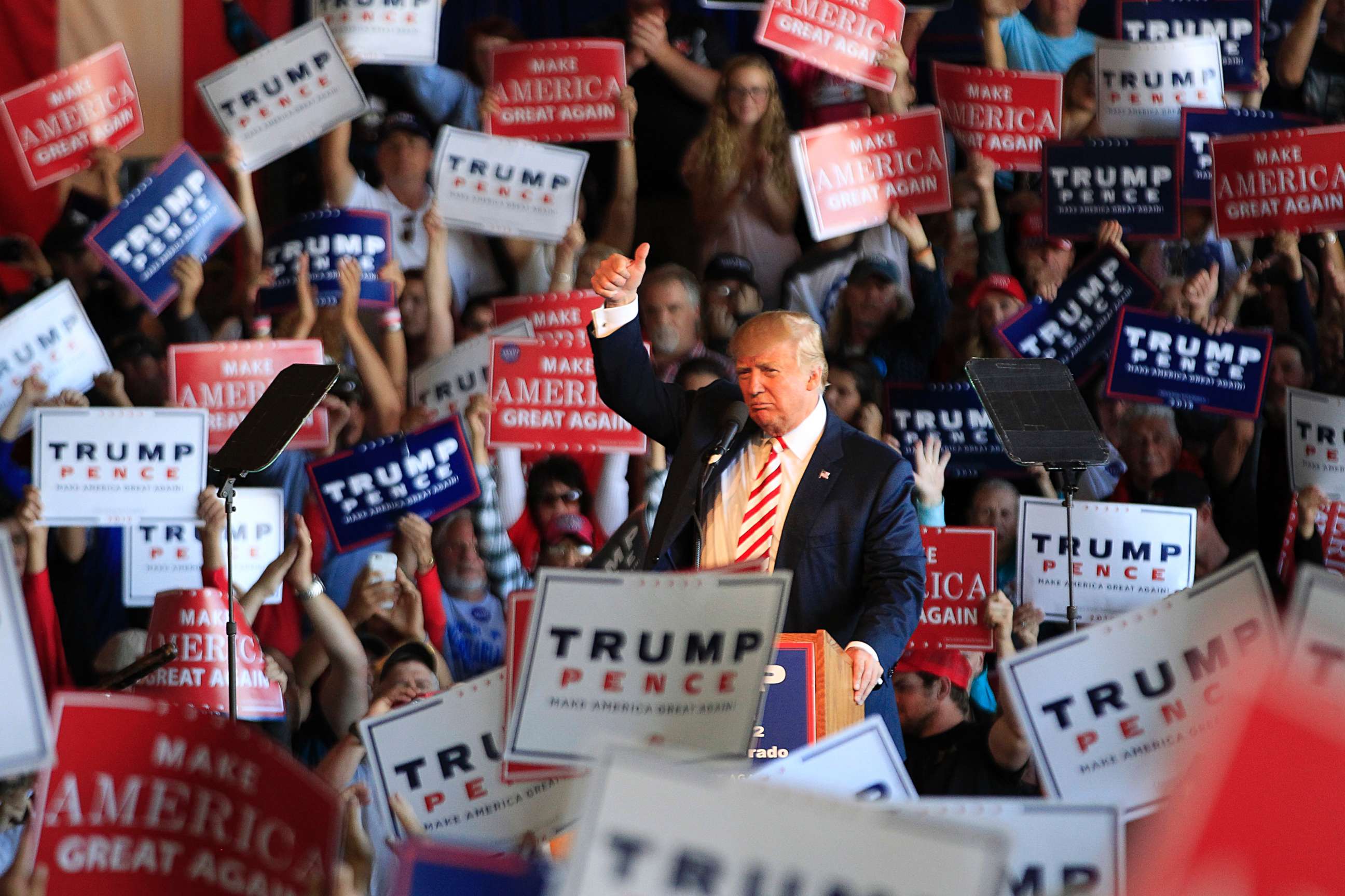RNC pledges undivided support for Trump re-election; state leaders consider canceling caucuses
The RNC passes an unprecedented pledge to give Trump its support.
Republican leaders held sensitive meetings to discuss differing strategies for the 2020 election, moving forward with a step to support President Donald Trump's reelection campaign as some state Republican officials separately considered canceling their party's primaries and caucuses.
The 2020 election may be more than 600 days away but amid fallout from the government shutdown and growing concern over special counsel Robert Mueller's probe into possible collusion between Russia and the Trump campaign during the 2016 presidential election, Republican leaders amplified their support for Trump at the Republican National Committee's winter meeting in New Mexico this week.
The Republican National Committee passed an unprecedented pledge on Friday to give Trump its "undivided support" before he's the party's official nominee.

"The members just wanted to underscore, underline, highlight that we are here to reelect President Trump and Republicans up and down the ballot," the RNC's national press secretary, Cassie Smedile, said.
The step could serve to discourage a potential Republican challenger from running against the president -- a stark contrast to the already-crowded Democratic field.
"He is the most qualified candidate in either party to continue to serve the American people," Smedile continued.
But the party stopped short of considering a resolution that would endorse the president as the Republican nominee in 2020.
Republican leaders did not consider a competing resolution endorsing Trump's re-nomination and re-election. It was backed by RNC member Jevon Williams, who received a letter of gratitude from Trump for his support.
But his resolution died in committee and was never voted on.
The rules for the 2020 Republican primary and nomination process were finalized in 2016 and still allow for a Republican challenger to be considered for the nomination if that person garners enough support from state parties.

However, state parties, which set their own rules for primaries and caucuses, could change them to prevent a challenger. Kansas Republican leaders are among some states who are leaning toward canceling caucuses or primaries.
"Historically, the KSGOP has not held a caucus with an incumbent president and used other party election methods to select a delegate," Kelly Arnold, chairman for the Kansas Republican Party, told ABC News.
The Kansas Republican Party will start the process this spring to determine how it will officially handle the delegate selection.
RNC members also voted unanimously today to re-elect Ronna McDaniel as party chair. McDaniel, Mitt Romney's niece, has been a strong supporter of Trump and even criticized her uncle for his critical op-ed of the president earlier this month. Tommy Hicks was elected as co-chair of the party.
The RNC's winter meeting served as a rallying ground for the president's re-election campaign as the party looks to expand on the success of the 2016 election and grow from the 2018 midterms, in which Democrats flipped key Republican seats to take control of the House.
"We've got our marching orders of how we're going to corral our volunteers and our teams within the states to go out there and go above and beyond of what we did in 2016 and 2018," Smedile said.
Still, some state leaders say more needs to be done. Former Republican Congressman Steve Pearce, who was defeated in New Mexico's governor's race in November, attributed the loss in part to growing "anti-Trump" sentiment in the state.
Now serving as New Mexico's chairman of the Republican Party, he's calling on the Trump administration to show up in states where Republicans are the minority.
"Our job is to sell to the broader population, and that's the reason I would like support from the White House," he said. "Get people out here. Show what you're doing. Let them ask you questions."



